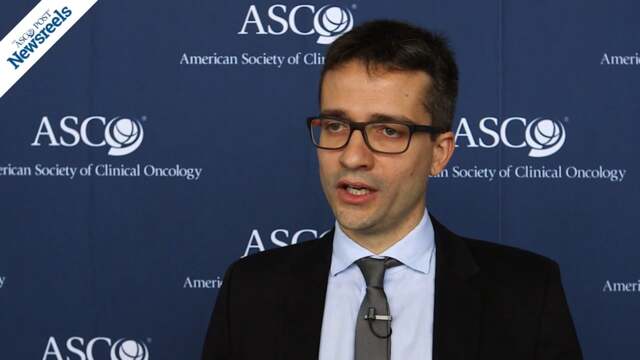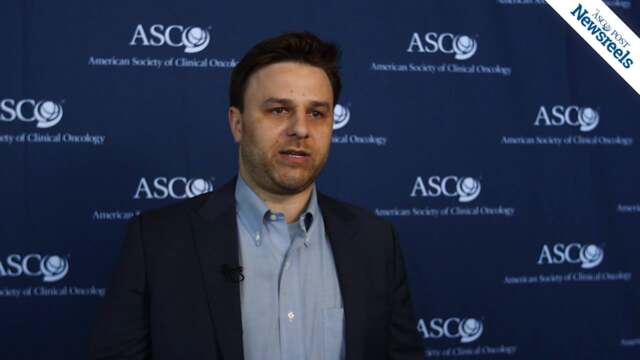Jame Abraham, MD, on Breast Cancer: Expert Perspective on the MONARCH 2 Trial
2017 ASCO Annual Meeting
Jame Abraham, MD, of the Cleveland Clinic, gives his views on findings on abemaciclib in combination with fulvestrant in patients with HR+/HER2- advanced breast cancer who progressed on endocrine therapy. (Abstract 1000)
Gunter von Minckwitz, MD, of the German Breast Group, discusses study findings on a randomized comparison of chemotherapy, trastuzumab, and placebo vs chemotherapy, trastuzumab, and pertuzumab as adjuvant therapy in patients with HER2-positive early breast cancer. (Abstract LBA500)
Matteo Lambertini, MD, of the Institut Jules Bordet, discusses a long-term follow-up analysis of the safety of pregnancy in patients with a history of estrogen receptor–positive breast cancer. (Abstract LBA10066)
Solange Peters, MD, PhD, of the University of Lausanne, examines the study findings on nivolumab ± ipilimumab in advanced small cell lung cancer, in the first report of a randomized expansion cohort. (Abstract 8503)
Matthew D. Hellmann, MD, of Memorial Sloan Kettering Cancer Center, discusses study findings on nivolumab ± ipilimumab in advanced small cell lung cancer, in the first report of a randomized expansion cohort. (Abstract 8503)
Ronald J. Buckanovich, MD, PhD, of the University of Michigan, discusses study findings on chemotherapy and cediranib in relapsed ovarian cancer. (Abstract 5506)





